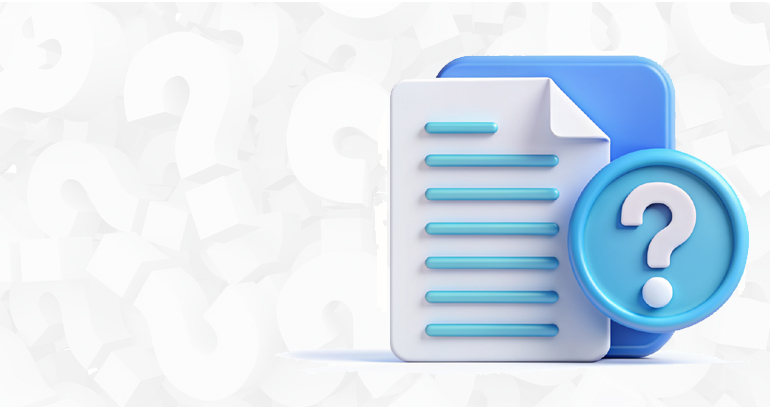
Frequently Asked Questions

FAQ
? What is a health insurance policy? Is it different from a mediclaim policy?
A health insurance policy is an insurance coverage that covers medical expenses such as - in-patient hospitalisation costs, surgery costs, emergency ambulance cost, hospital per day allowance, medicines bill etc. of life insured; if he/she becomes sick or gets injured in any accident.
A mediclaim policy, in general, very much similar to a health insurance policy; but it’s ambit of coverage is not as comprehensive as a health insurance policy has. A mediclaim policy pays-out medical expenses towards accident and pre-specified illness, and for specific sum insured; whereas, a health insurance policy covers maximum diseases including critical illness, and accidents as well. A health insurance policy gives you flexibility to review your sum insured and policy term after a specific period; but in mediclaim policy, you can’t.
? What does a health insurance cover?
A health insurance policy covers expenses that incurred due to the medical treatment/surgery. In order to get the benefits of the health plan, the policyholder has to go for at least 24 hours of continuous hospitalization. There are some day-care procedures that are also covered under a health plan, but you also need to get hospitalized to avail benefits.
Read your policy document to ascertain what is included and excluded under your policy.
? Do I need to buy a health insurance policy even if I’m young and healthy?
Yes, it’s always advisable to buy a health insurance policy of adequate sum insured when you are young and in good health. Here are the two points why to buy a Health Plan.
First and most important reason is- ‘peace of mind’. Having a health insurance policy, you won’t have to worry about the doctor’s fee and other medical expenses. Also, the possibility of any mishap or accident cannot be ruled out; it can happen to anybody, anywhere.
By buying a health plan in the young age, you can save on premiums. The possibility of becoming sick in younger age is lesser; you, therefore, can get a health insurance policy of adequate sum insured at best premium rate in your early age.
? Is there any eligibility criterion for having health insurance policy?
Anyone between the age group of 3-month (for the health floater plan) to 65-years can take a health insurance policy. However, the insurer may ask you to go through a medical check-up to ascertain your health condition before issuing the policy.Basis the underwriting guidelines which include age, health condition, family history, etc. the insurer will determine to give you a health plan or not.
? What is cashless health insurance policy?
A cashless health policy provides facility to get treatment at network hospitals (may vary from insurer to insurer) without making any payment. To avail this facility, the policyholder only needs to take approval from the insurance company/assigned TPA in advance in case of planned surgeries, and within the stipulated time in case of emergencies. Policyholders, in order to avail cashless treatment at network hospitals, need to produce health cards provided by insurers, with valid identity proofs to hospitals/TPAs.
? What are TPAs?
TPAs or third-party administrators are intermediaries between insurance companies, policyholders and hospitals. A TPA helps policyholder settle his/her claim hassle-free by establishing communication between the policyholder, the treating hospital and the insurer.
? What are network hospitals?
Network hospitals are hospitals/health units that have tied-up with TPAs or directly with the health insurance companies. With hospitalization in one of the network hospitals of the insurer, the policyholder can avail cashless hospitalization depending on the terms of the policy.
?What if there is no network hospital in my vicinity?
If there is no network hospital in your vicinity, don’t worry, get treatments at the hospital of your choice and pay all the medical bills at the time of discharge. And your insurer, later on will reimburse the medical expenses incurred after making claim under the policy.
? I already have a health insurance policy provided by my employer; do I still need to buy a separate one?
It’s good that you are covered under a group health insurance policy provided by your employer. But generally, insurance covers provided by employers are of a lesser sum insured, which seems to be insufficient in case of any medical emergency. Most group insurance policies have co-payment and high deductibles in-build, due to which you may require to pay from your own pocket.
Another reason, why you should have a separate policy is, you cannot be working with the same company for whole life, and as soon as you leave the job, your previous employer may take back health benefits, and you might not get such benefits from your current employer. As a result of this, you’ll have to buy a fresh policy in which you’ll lose pre-existing benefits that you have accrued over the period.
By buying a separate health policy, you can choose cover amount and other benefits as per your medical requirement.
? What are points-to-ponder while buying a health insurance policy?
Cost has always been a critical element in the entire decision making process for most of the Indians for any purchase. However, while buying insurance products, you must assure if the sum insured is sufficient.
There are some other salient elements that should be taken into account while buying a health insurance policy.
(a) Adequate cover
(b) List of Network hospitals
(c) Cashless facility
(d) Deductibles
(e) Waiting period for specific illnesses/condition
(f) Room-rent capping
(g) Exclusions
(h) Insurer’s claim settlement ratio.



